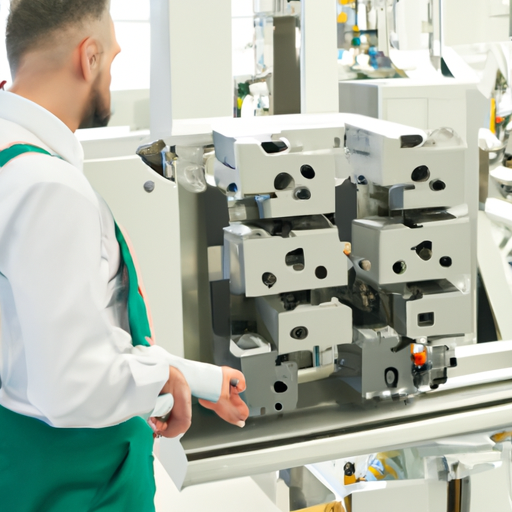Title: Exploring the Latest Dedicated Manufacturing Processes

1. Additive Manufacturing (200 words) Additive manufacturing, commonly known as 3D printing, has revolutionized the manufacturing industry by enabling the creation of complex and customized products with unprecedented precision. This process involves building objects layer by layer using digital models, eliminating the need for traditional subtractive manufacturing techniques. Additive manufacturing offers numerous advantages, including reduced material waste, faster production times, and the ability to create intricate designs that were previously unattainable. Industries such as aerospace, healthcare, and automotive have embraced this technology to produce lightweight components, medical implants, and prototypes, respectively.
2. Robotics and Automation (200 words) The integration of robotics and automation has significantly transformed manufacturing processes, enhancing efficiency, accuracy, and safety. Robots are increasingly being employed to perform repetitive tasks, such as assembly, packaging, and material handling, thereby reducing human error and increasing productivity. Automation systems, including conveyor belts, robotic arms, and computer numerical control (CNC) machines, have become integral to various industries, including automotive, electronics, and food processing. The latest advancements in robotics and automation include collaborative robots (cobots) that can work alongside humans, machine learning algorithms for adaptive automation, and the Internet of Things (IoT) connectivity for real-time monitoring and control.
3. Advanced Materials and Composites (200 words) The development of advanced materials and composites has opened up new possibilities in manufacturing, offering superior strength, durability, and lightweight properties. These materials, such as carbon fiber, graphene, and biodegradable polymers, are increasingly being used in industries like aerospace, automotive, and construction. Dedicated manufacturing processes, such as composite layup and resin infusion, enable the precise fabrication of complex structures using these advanced materials. The resulting products exhibit enhanced performance characteristics, reduced energy consumption, and improved sustainability.
4. Smart Manufacturing and Industry 4.0 (200 words) Smart manufacturing, also known as Industry 4.0, represents the integration of digital technologies and automation to create intelligent, interconnected manufacturing systems. This approach leverages technologies like artificial intelligence, big data analytics, cloud computing, and the IoT to optimize production processes, enable predictive maintenance, and enhance supply chain management. Smart factories equipped with sensors, real-time data analysis, and autonomous systems can adapt to changing demands, minimize downtime, and improve overall efficiency. The benefits of smart manufacturing include increased productivity, reduced costs, improved quality control, and enhanced worker safety.
Conclusion (100 words) Dedicated manufacturing processes continue to evolve, driven by advancements in technology and the need for increased efficiency and productivity. Additive manufacturing, robotics and automation, advanced materials, and smart manufacturing are among the latest trends shaping the manufacturing industry. These processes offer numerous benefits, including reduced waste, enhanced product customization, improved quality control, and increased sustainability. As businesses strive to stay competitive in a rapidly changing market, embracing these dedicated manufacturing processes will be crucial for success in the future.